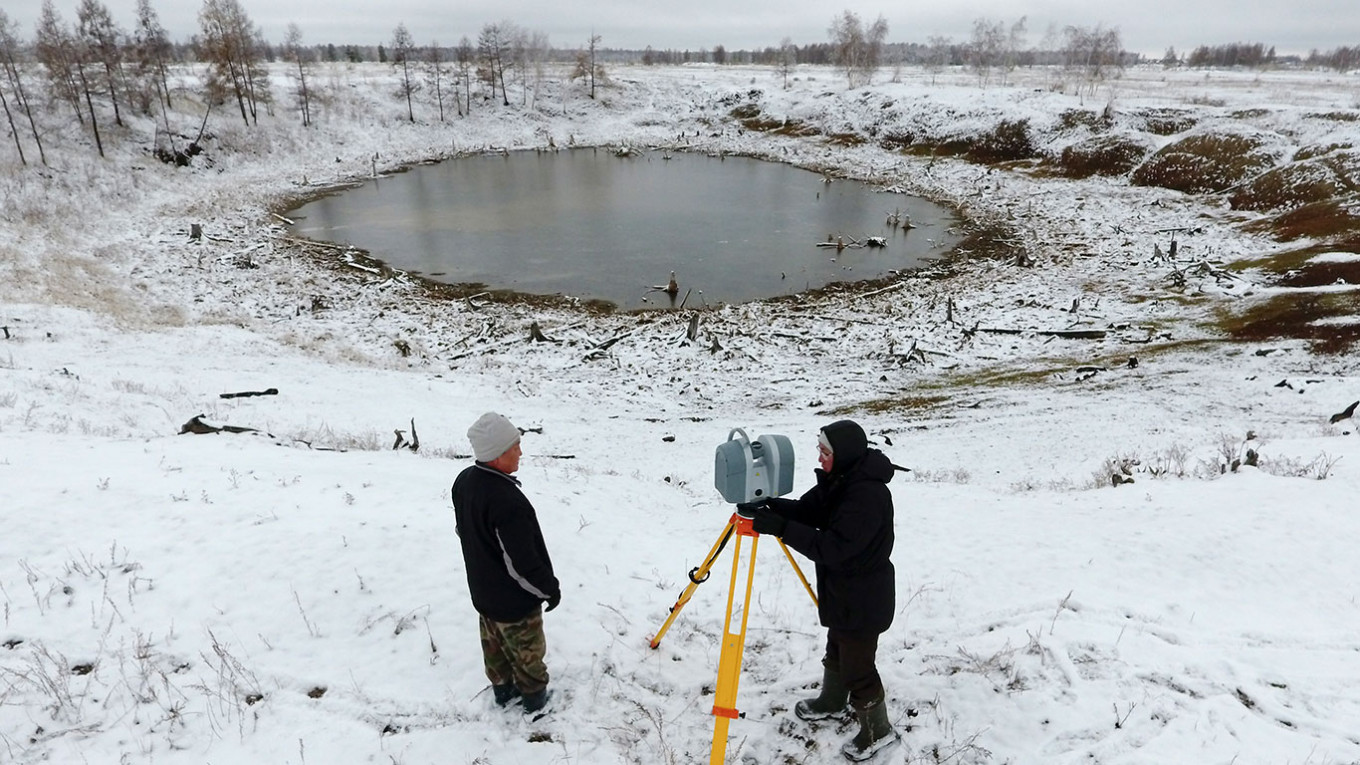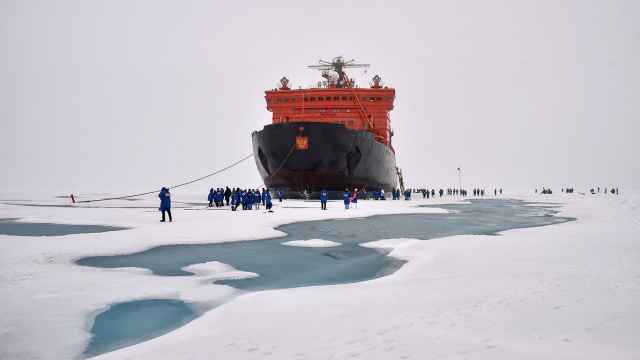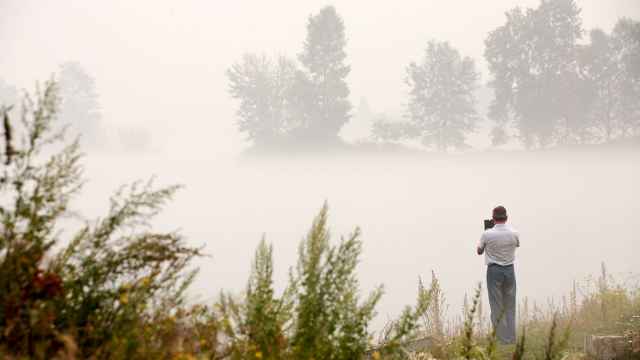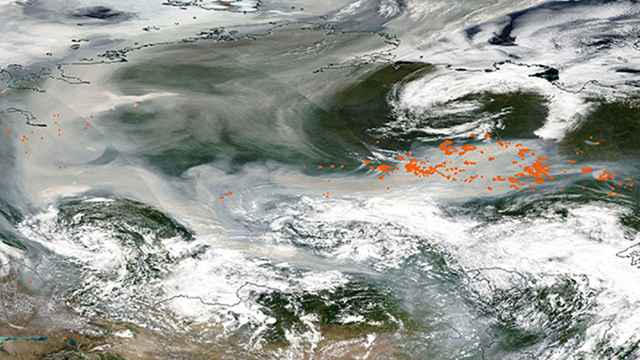As world leaders gather in Glasgow for the COP26 climate summit in hopes of agreeing on a strategy to avoid catastrophic global warming, Russia stands to face significant changes from climate change in the coming decades.
Here’s a look at some of the ways Russia, which is warming 2.5 times faster than the planet, is already being impacted by climate change — and how these processes will only intensify:
Melting permafrost
Roughly 65% of Russia’s territory is covered in permafrost. As air temperatures have risen in recent decades, this soil that has been frozen for millennia has begun to thaw.
This melting is already reshaping the landscape of the tundra and is expected to cause significant damage to human settlements and key energy and transportation infrastructure. And as permafrost melts, it releases long-stored greenhouse gases like methane, triggering an accelerating feedback loop of warming.
President Vladimir Putin recently told his government to come up with a plan to counter this threat, which is projected to cost the Russian economy billions of dollars by 2050.
Floods and droughts
Climate change will make catastrophic floods and heatwaves increasingly frequent in Russia, WWF scientist Alexei Kokorin told The Moscow Times this August. While overall precipitation might not increase, it will become more unpredictable, with prolonged periods of both heavy rain and drought becoming more likely.
This year, the republic of Sakha in northeastern Siberia saw a record drought that, when combined with higher-than-normal temperatures, exacerbated the historic wildfires that tore across the region.
Forest fires
While forests act as a natural carbon sink by absorbing excess greenhouse gases, they quickly become major greenhouse gas emitters if a forest fire hits — as trees they release CO2 and harmful particles into the atmosphere when they burn.
Russia has seen increasingly severe wildfires in recent years, most of which have affected remote, hard-to-reach areas of Siberia and the Far East. This year, one Siberian wildfire had a 2,000-kilometer frontline, making it impossible for firefighters to combat the blazes.
Russia’s decarbonization strategy heavily relies on the country’s forests to absorb excess carbon emissions, a plan some experts have met with skepticism.
Desertification
As Earth’s climate zones shift from the Equator to the poles, previously forested lands are turning into deserts.
The desertification process has already caused significant harm to communities in the Russian republic of Dagestan some 1,500 kilometers south of Moscow.
Russia’s key agricultural regions are located near to Dagestan, and experts worry that desertification could spread to these regions and impact the country’s food supply. If insufficient action is taken to combat climate change, desertification could reach Moscow itself by 2100, scientists at Aalto University projected.
A Message from The Moscow Times:
Dear readers,
We are facing unprecedented challenges. Russia's Prosecutor General's Office has designated The Moscow Times as an "undesirable" organization, criminalizing our work and putting our staff at risk of prosecution. This follows our earlier unjust labeling as a "foreign agent."
These actions are direct attempts to silence independent journalism in Russia. The authorities claim our work "discredits the decisions of the Russian leadership." We see things differently: we strive to provide accurate, unbiased reporting on Russia.
We, the journalists of The Moscow Times, refuse to be silenced. But to continue our work, we need your help.
Your support, no matter how small, makes a world of difference. If you can, please support us monthly starting from just $2. It's quick to set up, and every contribution makes a significant impact.
By supporting The Moscow Times, you're defending open, independent journalism in the face of repression. Thank you for standing with us.
Remind me later.






